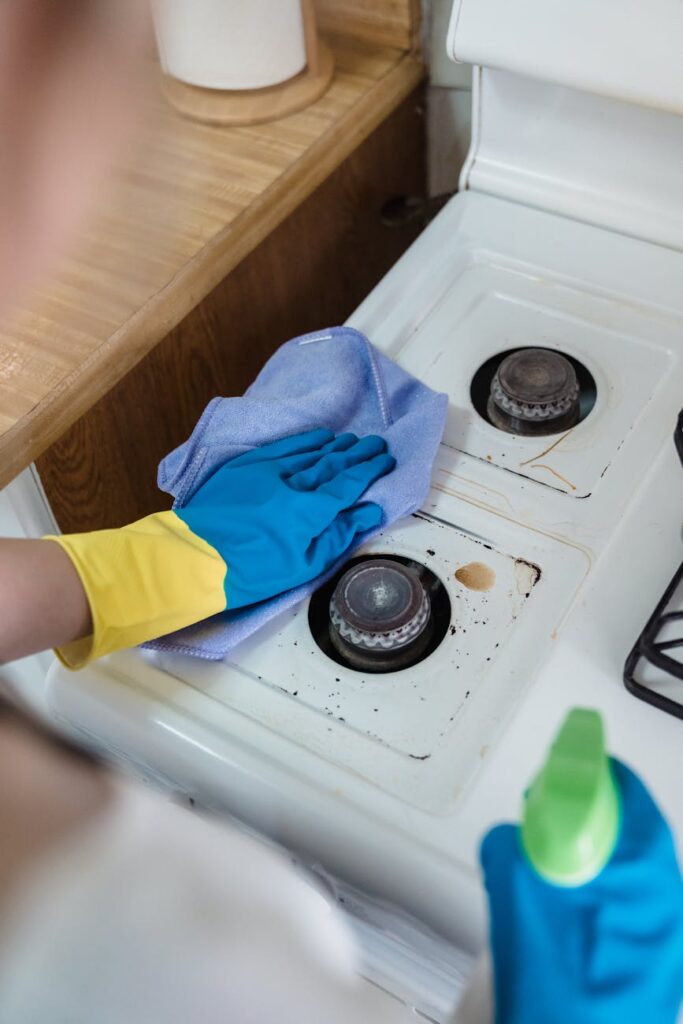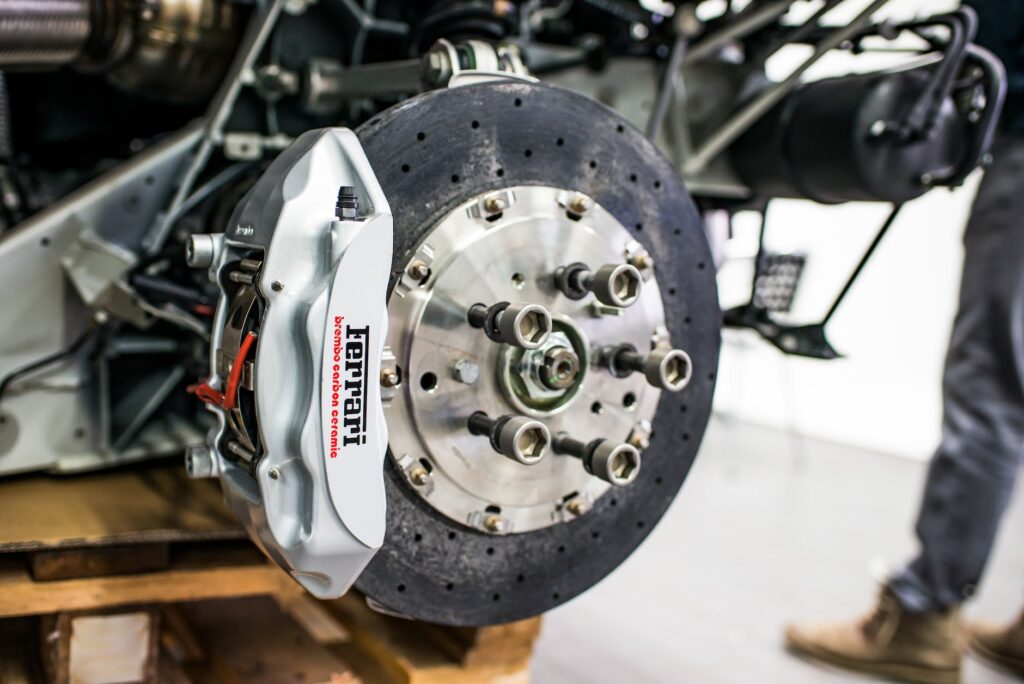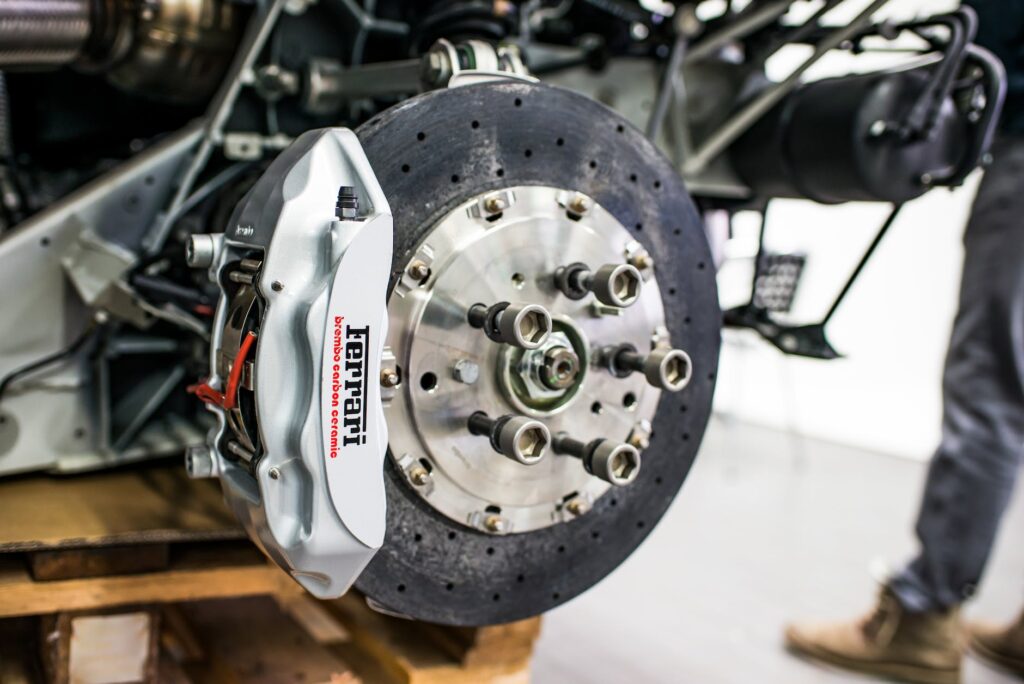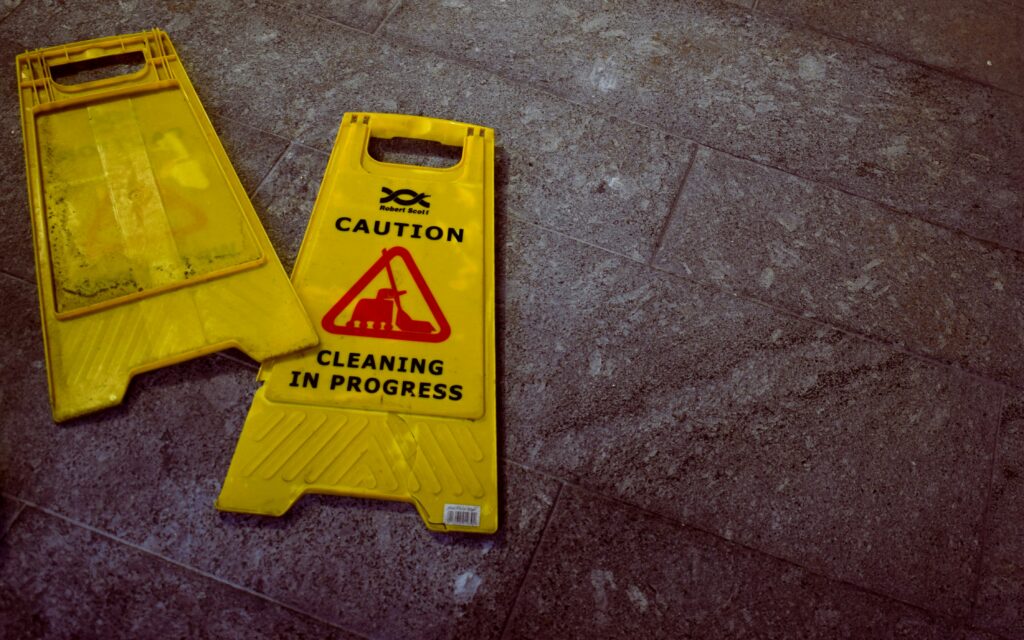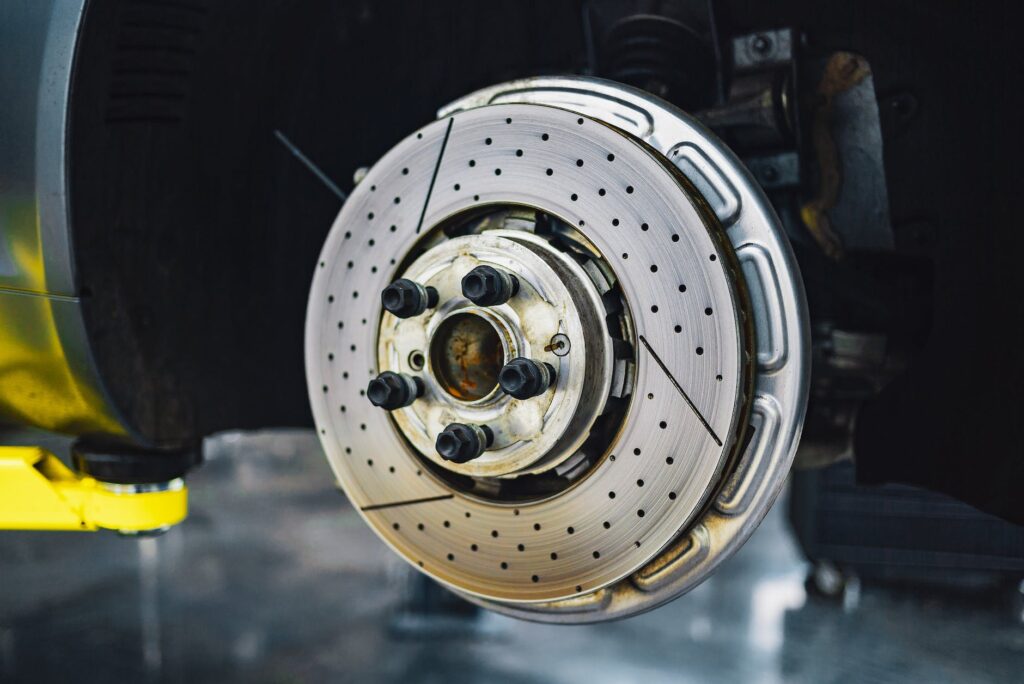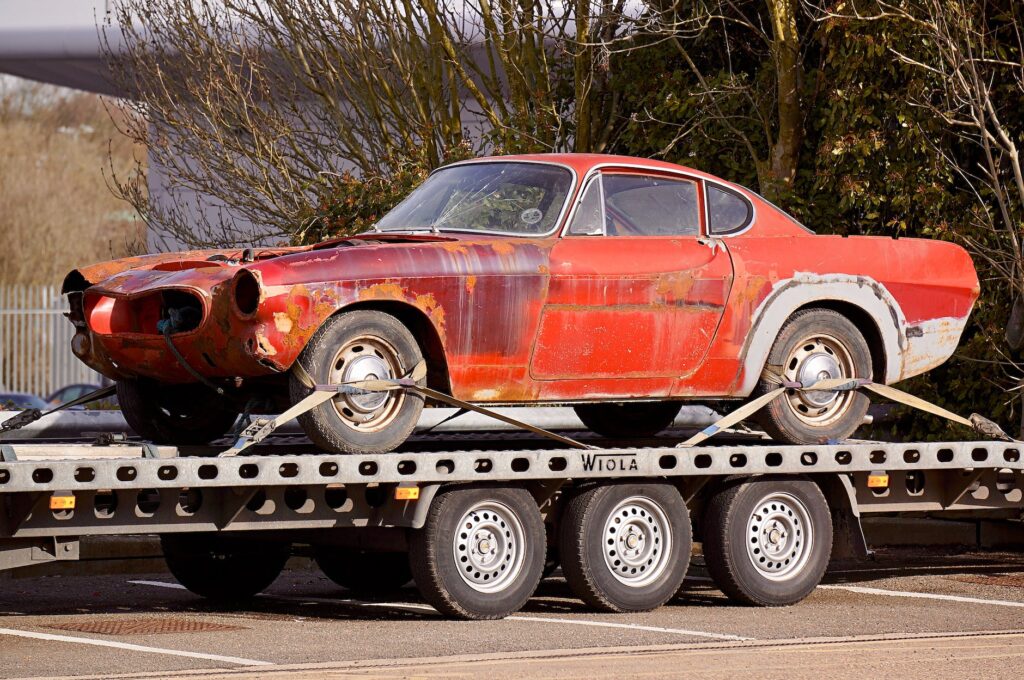Contents
Understanding Squeaky Brakes
Squeaky brakes can be a cause for concern for vehicle owners. Understanding the causes of brake squeak and the importance of addressing this issue is crucial for maintaining safety and ensuring optimal performance.
What Causes Brake Squeak?
Brake squeak is commonly caused by vibrations between the brake components, such as the brake pads and rotors. When these components come into contact, especially under pressure, it can result in a high-pitched squeaking noise. Several factors contribute to brake squeak, including:
- Worn Brake Pads: As brake pads wear down, it can lead to increased vibrations and potential squeaking.
- Glazed Brake Pads: Excessive heat or improper bedding of brake pads can cause a glaze to form on the pad surface, leading to noise during braking.
- Contaminated Brake Components: Buildup of debris, dust, or rust on the brake pads or rotors can create noise when the brakes are applied.
- Improperly Lubricated Brake Components: Lack of proper lubrication on brake components, such as caliper pins or pad backing plates, can result in friction and noise.
It’s important to note that while brake squeak is often benign, it can sometimes indicate more significant issues with the braking system. If you notice any unusual noises or changes in braking performance, it’s advisable to have a professional inspection to ensure safety.
The Importance of Addressing Squeaky Brakes
Addressing squeaky brakes is not only essential for eliminating the annoying noise but also for maintaining the safety and performance of your vehicle. Ignoring brake squeak can lead to potential problems, including:
- Reduced Braking Performance: Squeaky brakes may indicate a decrease in braking efficiency, compromising your ability to stop quickly and safely.
- Increased Wear and Tear: Brake squeak can accelerate the wear of brake components, such as brake pads and rotors, leading to the need for more frequent replacements.
- Potential Damage: If left unaddressed, brake squeak can cause damage to other brake system parts, resulting in more extensive and costly repairs.
By identifying and resolving the underlying causes of brake squeak, you can ensure that your braking system operates smoothly and effectively. Regular maintenance, including cleaning and lubrication of brake components, can help prevent brake squeak from occurring in the first place.
In the following sections, we will explore various alternatives to traditional brake cleaner spray that can effectively address brake squeak and maintain the performance of your braking system. Remember to choose the solution that best suits your needs and consult the manufacturer’s recommendations for your specific vehicle.
Traditional Brake Cleaner Overview
Before exploring alternative products for brake cleaning, it’s important to understand the basics of traditional brake cleaner. This section will delve into how brake cleaner works and discuss the benefits and limitations of using this conventional cleaning solution.
How Does Brake Cleaner Work?
Brake cleaner is a solvent-based cleaning agent designed specifically for brake maintenance. It is formulated to effectively remove dirt, grime, grease, oil, and brake dust from various brake components. Brake cleaner typically consists of a mixture of solvents, such as acetone, toluene, or methylene chloride, which have strong degreasing properties.
When applied to brake parts, the solvents in brake cleaner quickly penetrate and dissolve contaminants that may impair brake performance. The evaporation process of brake cleaner is usually rapid, leaving little to no residue behind. This ensures that the cleaned surfaces are free from any substances that could compromise braking efficiency.
Brake cleaner is commonly used to clean brake rotors, pads, calipers, and other brake system components. It helps to remove brake dust buildup, which can contribute to squeaky brakes and reduce braking performance. Regular cleaning with brake cleaner can enhance the lifespan and functionality of brake components.
Benefits and Limitations of Traditional Brake Cleaner
Traditional brake cleaner offers several benefits that make it a popular choice for brake maintenance. Some of the advantages include:
- Effective cleaning: Brake cleaner is specifically formulated to remove stubborn contaminants from brake parts, ensuring optimal brake performance.
- Quick evaporation: The rapid evaporation of brake cleaner leaves little residue behind, allowing for clean, dry surfaces that are ready for reassembly or use.
- Versatility: Brake cleaner is not limited to brake components and can be used as a versatile cleaner around the garage, making it a handy tool for various cleaning tasks (The Drive).
However, traditional brake cleaner also has some limitations:
- Chemical composition: The solvents used in brake cleaner can be harsh and potentially harmful to certain materials. It is important to exercise caution and avoid contact with rubber, plastics, and painted surfaces that may be susceptible to damage (will brake cleaner damage rubber, is brake cleaner bad for paint).
- Safety considerations: Brake cleaner should be used in a well-ventilated area due to the potential inhalation of fumes. It is also advisable to wear protective gloves and eyewear when working with brake cleaner to minimize skin and eye irritation.
- Environmental impact: Some of the solvents found in traditional brake cleaner are considered volatile organic compounds (VOCs) and can contribute to air pollution. Proper disposal methods should be followed to minimize environmental impact.
While traditional brake cleaner is a widely used and effective product for brake cleaning, alternative solutions are available for those seeking different options. In the following sections, we will explore several alternatives to traditional brake cleaner that offer unique benefits and may be suitable for specific cleaning needs.
Alternative Products for Brake Cleaning
When it comes to cleaning your brakes, there are several alternative products that you can use as substitutes for traditional brake cleaner. These alternatives offer effective cleaning properties and can help address squeaky brakes. Let’s explore five top alternatives:
Carburetor Cleaner as a Brake Cleaner Alternative
Carburetor cleaner is a versatile product that can also serve as an effective brake cleaner substitute. It is especially useful when you need a cleaner that has degreasing properties. Carburetor cleaner can help remove grease, oil, and other contaminants from your brake components, ensuring optimal performance.
Electrical Contact Cleaner for Brake Cleaning
Electrical contact cleaner is another suitable alternative for cleaning brakes. It contains solvents similar to those found in brake cleaners, making it effective in removing dirt, grime, and brake dust. This cleaner is particularly beneficial for cleaning electrical components associated with the braking system.
Brake Parts Cleaner as an Alternative Solution
Brake parts cleaner is not only a good alternative to traditional brake cleaner but also a highly effective tool specifically designed for brake maintenance. It is formulated to remove brake fluid, oil, grease, and other contaminants that can accumulate on brake components. Using a brake parts cleaner ensures thorough cleaning and helps restore your brakes’ performance.
White Vinegar: A Natural Brake Cleaner Alternative
White vinegar can be used as a natural alternative to brake cleaner. Its acidic properties make it effective in removing grime, dust, and dirt from brake components. Simply apply a small amount of white vinegar to a clean cloth or sponge and gently wipe the brake parts. However, it’s important to note that vinegar may not be as potent as other alternatives, and it may not remove stubborn deposits effectively.
Rubbing Alcohol as a Brake Cleaner Substitute
Rubbing alcohol, also known as isopropyl alcohol, can serve as a suitable brake cleaner substitute. It evaporates quickly without leaving residue, making it ideal for cleaning brake parts effectively. Apply some rubbing alcohol to a clean cloth or cotton swab and use it to clean brake components. However, it’s important to avoid using rubbing alcohol on rubber components, as it may cause damage.
By considering these alternative products, you can find suitable substitutes for traditional brake cleaner to address squeaky brakes. Remember to follow proper safety precautions when using these alternatives and choose the product that best suits your specific needs. For more information on brake cleaning and maintenance, check out our related articles on brake cleaner alternatives and how to clean car brakes without taking tires off.
Other Brake Cleaner Alternatives
While traditional brake cleaner sprays are commonly used for cleaning brake components, there are several alternative products available that can effectively serve the same purpose. These alternatives offer different benefits and may be more suitable for specific situations. Here are five superior alternatives to consider:
Citrus-Based Cleaners for Brake Cleaning
Citrus-based cleaners, such as those containing orange oil, are environmentally friendly alternatives to traditional brake cleaner sprays. These cleaners have degreasing properties that effectively clean brake components. They can help remove grime, dust, and dirt from the brake surfaces. When using citrus-based cleaners, it’s important to follow the manufacturer’s instructions for application and safety precautions. For more information, check out our article on the best spray for squeaky brakes.
Acetone: A Strong Brake Cleaner Substitute
Acetone, commonly found in nail polish remover, can be a strong substitute for brake cleaner. Its ability to dissolve grease, oil, and dirt makes it an effective cleaner for brake surfaces. When using acetone, it’s important to apply it sparingly and avoid contact with rubber or plastic components, as it may cause damage. Always exercise caution and follow safety guidelines when working with acetone. For more information about using acetone as a brake cleaner substitute, visit our article on best spray for squeaky brakes.
Lemon Juice as a Natural Brake Cleaner Alternative
Lemon juice, with its acidic properties, can be used as a natural alternative to brake cleaner. It can effectively remove grime, dust, and dirt from brake components. Simply apply lemon juice to a clean cloth or sponge and gently scrub the brake surfaces. After cleaning, thoroughly rinse the components with water and dry them completely. It’s important to note that lemon juice may not be as potent as traditional brake cleaners, so additional care and effort may be required. For more tips on using lemon juice as a brake cleaner alternative, refer to our article on best spray for squeaky brakes.
Simple Green: A Versatile Brake Cleaner Option
Simple Green is a versatile cleaning solution that can be used as an alternative to traditional brake cleaners. It is non-toxic and biodegradable, making it an environmentally friendly option. Simple Green effectively removes grease and grime from brake components. It’s important to follow the manufacturer’s instructions for proper application and safety precautions when using Simple Green. For more information about using Simple Green as a brake cleaner alternative, visit our article on best spray for squeaky brakes.
Warm Soapy Water for Brake Cleaning
In certain situations, warm soapy water can be a suitable alternative for cleaning brake parts. It’s a safe option that can effectively remove dirt and grime from the surfaces. When using warm soapy water, ensure that the soap used is mild and free from harsh chemicals. Thoroughly rinse the brake components after cleaning to remove any soap residue, and make sure to dry them completely to prevent water-induced damage. For more tips on using warm soapy water for brake cleaning, refer to our article on best spray for squeaky brakes.
When considering these alternative brake cleaner options, it’s important to assess your specific needs, safety requirements, and the condition of your brake components. Always exercise caution and follow recommended procedures when working with brake cleaning products.
Industrial Brake Cleaner Alternatives
For those seeking alternatives to traditional brake cleaners, industrial-grade options can provide effective solutions for frequent and heavy-duty use. Here are five superior alternatives worth considering:
Supercritical Carbon Dioxide and Dry Ice Blasting
Supercritical carbon dioxide or dry ice blasting is an alternative method to traditional brake cleaners, particularly for industrial applications. This abrasive technique eliminates the need for harmful vapors and prevents the binding of dust and brake debris in liquid form (Wikipedia). It offers a powerful and efficient way to clean brakes without the use of chemicals.
The Triple7 Product Range for Safe Brake Cleaning
The Triple7 product range offers safe alternatives to toxic and dangerous chemicals commonly found in workplaces. These alternatives are ideal for brake cleaning tasks, replacing substances like MEK, Acetone, Gun Wash, and products containing carcinogens like Benzene and its derivatives (Envirofluid). The Triple7 products prioritize safety without compromising on performance, making them a reliable choice for brake maintenance.
ActiveEco: High-Power Brake Cleaning Solutions
ActiveEco is a specialized range of chemicals designed for challenging industrial tasks where power and efficiency are paramount. These high-power brake cleaning solutions offer superior cleaning performance, ensuring effective removal of brake dust, grime, and contaminants. ActiveEco products provide an excellent alternative for heavy-duty brake cleaning needs (Envirofluid).
GritMitts: Heavy-Duty Grit Hand Soap for Brake Cleaning
GritMitts is a heavy-duty grit hand soap that utilizes pumice, a light volcanic rock, and natural citrus oils for deep cleaning. This industrial-grade hand soap effectively removes grease, oil, and dirt from hands after brake cleaning tasks. GritMitts offers a powerful yet gentle alternative for thorough hand cleaning in brake maintenance environments (Envirofluid).
Wipe-Itts: Eco-Friendly Brake Cleaning Wipes
Wipe-Itts are workshop cleaning wipes designed specifically for brake cleaning tasks. These wipes are plastic-free and biodegradable, making them an environmentally friendly choice. After use, they can be disposed of in compost bins, minimizing waste and promoting sustainability. Wipe-Itts provide a convenient and eco-conscious solution for brake cleaning needs in workshops and garages (Envirofluid).
When considering industrial brake cleaner alternatives, it’s essential to prioritize safety, performance, and environmental impact. Each of these options offers unique benefits that cater to different industrial requirements. By choosing the right alternative, you can ensure effective brake cleaning while maintaining a safe and sustainable working environment.
Safety and Precautions
When using brake cleaner alternatives, it is important to prioritize safety and take necessary precautions to ensure a smooth and risk-free cleaning process. Here are some handling and safety tips to keep in mind when using brake cleaning alternatives:
Handling and Safety Tips for Brake Cleaning Alternatives
Work in a Well-Ventilated Area: Whether you are using traditional brake cleaner or alternative products, it is crucial to work in a well-ventilated area. Proper ventilation helps to minimize exposure to potentially harmful fumes and ensures that the air quality remains safe.
Avoid Open Flames and Sparks: Brake cleaner alternatives are highly flammable. It is essential to keep them away from open flames, sparks, and any other potential sources of ignition. Smoking near brake cleaning products, especially non-chlorinated brake cleaner, is strictly advised against.
Wear Protective Clothing and Eyewear: Protect yourself by wearing safety clothing, including gloves and goggles, to prevent contact with the skin and eyes. Brake cleaning products, including alternative options, can be harmful upon direct contact. Taking necessary precautions reduces the risk of adverse effects.
Proper Disposal of Waste: Follow proper waste disposal guidelines when disposing of any leftover brake cleaning products or materials used during the cleaning process. This helps to minimize environmental impact and ensure compliance with local regulations.
Choosing the Right Brake Cleaner Alternative
When selecting a brake cleaner alternative, consider factors such as compatibility with your brake system, effectiveness in removing contaminants, and safety for both you and the environment. It is important to choose alternatives that align with your specific cleaning needs and requirements. Conduct thorough research, read product labels, and consult with professionals if needed.
Potential Risks and Considerations
While brake cleaner alternatives can be effective, it is essential to be aware of potential risks and considerations. Some alternative products may not be as potent as traditional brake cleaners, and multiple applications or additional cleaning methods may be required. Additionally, certain alternatives may have specific limitations or compatibility issues depending on the type of brakes or materials involved.
Always refer to the manufacturer’s instructions and guidelines for the specific brake cleaner alternative you choose. If you encounter any doubts or concerns, consult with a professional or seek expert advice to ensure the safe and proper use of the product.
By following these safety tips, choosing the right brake cleaner alternative, and being aware of potential risks, you can maintain a safe environment while effectively addressing brake cleaning needs. Remember, safety should always be a priority when working with any cleaning products, including brake cleaner alternatives.
Alternative Products for Brake Cleaning
When it comes to brake cleaning, traditional brake cleaner sprays have long been the go-to solution. However, there are several alternative products available that can effectively clean brakes and provide superior results. In this section, we will explore five top brake cleaner alternatives: carburetor cleaner, electrical contact cleaner, brake parts cleaner, white vinegar, and rubbing alcohol.
Carburetor Cleaner as a Brake Cleaner Alternative
Carburetor cleaner is a versatile product that can also be used as a substitute for brake cleaner. It not only cleans but also has degreasing properties, making it an excellent choice for removing grime and dirt from brake components. The solvents present in carburetor cleaner effectively dissolve grease and oil, leaving your brakes clean and ready for optimal performance.
Electrical Contact Cleaner for Brake Cleaning
Electrical contact cleaner is another suitable alternative to traditional brake cleaner. It contains solvents similar to those found in brake cleaners, making it effective at removing brake dust, grime, and debris. Electrical contact cleaner is particularly useful for cleaning electrical components, ensuring that your brakes function properly.
Brake Parts Cleaner as an Alternative Solution
Brake parts cleaner is specifically designed for brake maintenance, making it an ideal alternative to brake cleaner sprays. It is formulated to effectively clean brake components, removing brake dust, oil, and other contaminants. Brake parts cleaner is a powerful solution that can help restore the performance of your brakes.
White Vinegar: A Natural Brake Cleaner Alternative
White vinegar, known for its acidic properties, can be used as a natural alternative to brake cleaner. It can effectively remove grime, dust, and dirt from brake components. Simply soak a cloth or sponge in white vinegar and use it to clean the brakes. Rinse thoroughly with water afterward to remove any residue.
Rubbing Alcohol as a Brake Cleaner Substitute
Rubbing alcohol is another option for cleaning brakes. It evaporates quickly without leaving residue, making it ideal for removing brake dust, oil, and other contaminants. Apply rubbing alcohol to a cloth or sponge and use it to wipe down the brake components. Ensure proper ventilation when using rubbing alcohol.
While these alternatives can effectively clean brakes, it’s important to note that they may not provide the same level of performance as traditional brake cleaner sprays. Additionally, always follow safety precautions when working with any cleaning product. For more information on handling and safety tips, refer to our section on safety and precautions.
In conclusion, if you’re looking for alternatives to traditional brake cleaner sprays, consider trying carburetor cleaner, electrical contact cleaner, brake parts cleaner, white vinegar, or rubbing alcohol. These alternatives can help you maintain clean and well-performing brakes. Remember to choose the option that suits your needs and always prioritize safety when working with any cleaning product.


